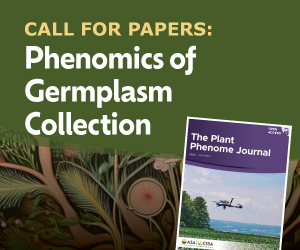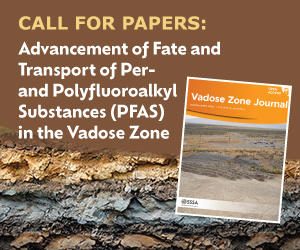Is Sulfur Limiting in U.S. Soybean Production?

In recent years, less free sulfur has been added to the soil due to emissions regulations and purer fertilizers. At the same time, soybean yields continue to increase. As they continually adjust their fertility management, farmers need accurate nutrient recommendations while also considering economics and the environment.
A group of researchers recently evaluated how various sulfur and nitrogen rates and sources affected soybean yield in diverse environments and growing conditions across the U.S. They compared three sulfur rates (11, 22, and 33 kg ha–1) using ammonium sulfate and calcium sulfate broadcast by hand at planting at 52 sites in 10 states over two years. To examine the impact of nitrogen, they applied urea at rates to equal that supplied by ammonium sulfate. Fertilizer additions affected yield (both negatively and positively) at 12 sites, all of which had an average yield above 3,643 kg ha–1. Crop growth was limited by sulfur supply in only three of the 52 sites.
The study demonstrates that, in most environments, the atmosphere and soil cycling provide sufficient sulfur for optimal crop growth. If sulfur becomes more limiting in the future, this study provides valuable information for further sulfur fertility research.
Adapted from Brooks, K., Mourtzinis, S., Conley, S. P., Reiter, M. S., Gaska, J., Holshouser, D.L.,... & Matcham, E. (2023). Soybean yield response to sulfur and nitrogen additions across diverse U.S. environments. Agronomy Journal, 115, 370–383. https://doi.org/10.1002/agj2.21216
Text © . The authors. CC BY-NC-ND 4.0. Except where otherwise noted, images are subject to copyright. Any reuse without express permission from the copyright owner is prohibited.










